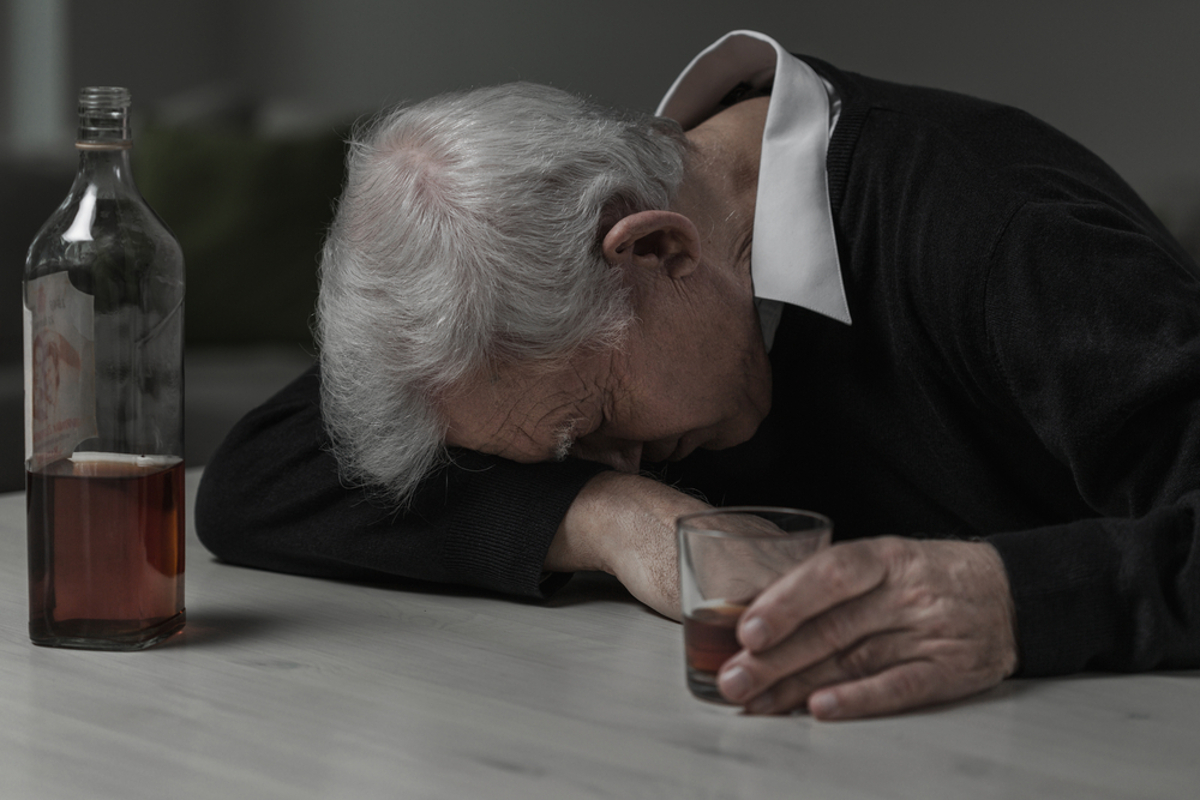
What’s with the Rise of Elder Alcoholics?
Do we still respect our elders when they become elder alcoholics? We sincerely should hope so. After all, respecting someone isn’t a question of age, even that of an alcoholic. Respect is something given unconditionally, until there’s a reason to pull it back.
But what’s with the rise of elder alcoholics? According to Paula Span’s New York Times piece “Why Are Older Americans Drinking So Much?”, “the pandemic played a role in increased consumption, but alcohol use among people 65 and older was climbing even before 2020”. Span should know, since she’s the series author of the Times’ compelling The New Old Age.
Span’s also got the numbers to back up her claim. Some of those numbers come from the Centers for Disease Control and Prevention, who say the annual number of alcohol-related deaths from 2020 through 2021 exceeded 178,000. That’s more deaths than from all drug overdoses combined.
Furthermore, “an analysis by the National Institute on Alcohol Abuse and Alcoholism shows that people over 65 accounted for 38 percent of that total. From 1999 to 2020, the 237 percent increase in alcohol-related deaths among those over age 55 was higher than for any age group except 25- to 34-year-olds.
Those are frightening stats. And it’s little wonder they’ve got public officials dutifully alarmed.
NIAAA director George Koob attributes some of the miscues to a mix of science and perception, stating that Americans largely fail to recognize the true hazards of alcohol. “Alcohol is a social lubricant when used within the guidelines, but I don’t think they realize that as the dose increases it becomes a toxin,” he said. “And the older population is even less likely to recognize that.”
And health care providers and elder advocates have become worried things are only going to get worse if older people’s drinking behavior doesn’t change.
A Change is Coming for Elder Alcoholics
But elder Americans behavior “has been changing” writes Span. “The proportions of people over 65 who report using alcohol in the past year (about 56 percent) and the past month (about 43 percent) are lower than for all other groups of adults. [Unfortunately] older drinkers are markedly more likely to do it frequently, on 20 or more days a month, than younger ones.”
That change isn’t always for the best though. For instance, a 2018 meta-analysis found that binge drinking had climbed nearly 40 percent among older Americans over the past 10 to 15 years.
What’s going on here? Well, the pandemic for one.
“The C.D.C. reported that deaths attributable directly to alcohol use, emergency room visits associated with alcohol, and alcohol sales per capita all rose from 2019 to 2020, as Covid arrived and restrictions took hold.”
“A lot of stressors impacted us: the isolation, the worries about getting sick,” Dr. Koob said. “They point to people drinking more to cope with that stress.”
Researchers also cite a cohort effect. Compared to those before and after them, “the boomers are a substance-using generation,” said Keith Humphreys, a psychologist and addiction researcher at Stanford. And they’re not abandoning their youthful behavior, he said.
If anything, they’re embracing it, despite claims to the contrary.
Seniors may argue that they are merely drinking the way they always have, but “equivalent amounts of alcohol have much more disastrous consequences for older adults,” whose bodies cannot process it as quickly, said Dr. David Oslin, a psychiatrist at the University of Pennsylvania’s Perelman School of Medicine and the Veterans Affairs Medical Center in Philadelphia.
“It causes slower thinking, slower reaction time and less cognitive capacity when you’re older,” he said, ticking off the risks.
Long associated with liver diseases, alcohol also “exacerbates cardiovascular disease, renal disease and, if you’ve been drinking for many years, there’s an increase in certain kinds of cancers,” he said. Drinking contributes to falls, a major cause of injury as people age, and disrupts sleep.
Even worse, older adults also take a lot of prescription drugs, and alcohol interacts with a long list of them. These interactions can be particularly common with pain medications and sleep aids like benzodiazepines, sometimes causing over-sedation. In other cases, alcohol can reduce a drug’s effectiveness.
Dr. Oslin cautions that, while many prescription bottles carry labels that warn against using those drugs with alcohol, patients may shrug that off, explaining that they take their pills in the morning and don’t drink until evening.
“Those medications are in your system all day long, so when you drink, there’s still that interaction,” he tells them.
Be Careful Dear Elder
All of which is to remind you, Dear Elder, to be careful. To pay attention to the instructions on your prescription pill bottle, as well as to what your body is saying to you. If you do have to drink please be mindful of your alcohol intake, and how it plays upon your night and your day. We don’t want to see you binge your way into the ER, let alone the grave.
And if you do need some help, give us a ring please. Healing Properties had been helping men get sober – and <i>stay sober</i> – since 2002. We’d be absolutely honored to help you too.